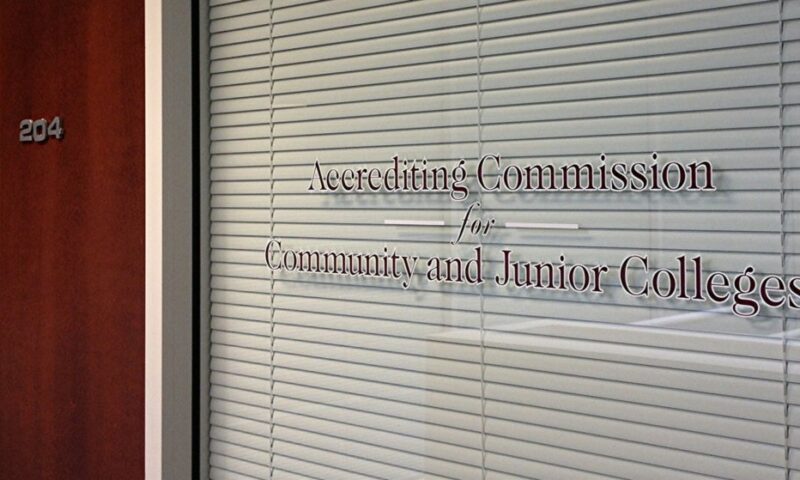

Earlier this month our team from Jobs to Move America (JMA) attended the American Public Transportation Association (APTA) Annual Meeting in San Francisco. We were there to learn the latest in transit trends, from sustainability planning to high-speed rail. We were also an outspoken advocate on behalf of American labor and taxpayers amongst 1,500 attendees. Unfortunately, even with the presence of the Department of Transportation (DOT) and the Federal Transit Administration (FTA), domestic labor was largely left out of the conversation, since most participants were public transit officials, manufacturing company representatives, and private sector consultants focused on stretching the dollar.
Despite this bottom-line focused crowd, we were encouraged by the plenary session’s appearance of DOT Secretary Anthony Foxx. He argued that with the right configuration, transportation can connect workers to sustainable jobs and living wages, and transportation as an industry can also generate employment opportunities for disadvantaged Americans seeking second chances.
» Read more about: Making Public Transportation Work for America's Job Seekers »


Sue Poucher, 64, is a Navy veteran from Michigan who joined the paid workforce at age 18, and left it in April 2014, due to a lack of job openings in her field, retail sales. She was one of 200 people who attended a daylong conference in Sacramento Oct. 15. The gathering, called “Tomorrow’s California: New Visions for Retirement Security,” focused on the release of a new report on aging, economics, public resources and policy solutions.
“I get Cal-Fresh, live in U.S. Housing and Urban Development subsidized senior housing and rely solely on my $943 monthly Social Security check,” Poucher told Capital & Main at the conference. “When food prices go up, what are you supposed to do, not eat?”
Nearly two-thirds of California’s private-sector workers lack employer-sponsored retirement plans.
The Sacramento resident has no savings to fall back on,
» Read more about: Conference Sees Hard Road for Retiring Californians »


“It is too far gone, let’s start over again.” That is the growing consensus of opinion after years of rising tensions and escalating concerns about the methods and practices of the Accrediting Commission for Community and Junior Colleges (ACCJC). The organization has accredited California’s community colleges for more than 50 years, but now faces losing the authority to put its stamp of approval on the two-year colleges.
In a major policy shift, California Community Colleges Chancellor Brice Harris and a task force of administrators, faculty, trustees and accreditation liaisons have called for “the investigation of all available avenues for establishing a new model for accreditation.” In other words: Find a new commission. The recommendation is contained in the Chancellor’s Report on Accreditation, released in August.
See Capital & Main’s ACCJC Story Archive
“The time has come,” the report pointedly concluded,
» Read more about: Task Force: Replace Junior College Accreditation Commission »


Five trillion tons.
That’s how much ice melted in Greenland and Antarctica between 2002 and 2014 – and the reason why the seas already rise above low-lying islands in the South Pacific, displacing tens of thousands of people and threatening coral reefs that nurture uncountable numbers of sea creatures. Because of the climate change crisis we’ve become used to reading this kind of metric, along with the science-class comparisons that make it easy to visualize the colossal numbers involved. (Those five trillion tons, we are told, could make an ice cube 11 miles long on each side.) What we don’t always grasp, however, is the domino effect that one environmental disaster can have on the other side of the world.
A few years back, my wife Susan and I camped at Malakoff Diggins State Park, just north of Nevada City in Northern California. The place is famous for its earth formations that are similar to those of Brice Canyon National Park,


You wouldn’t hand your laptop to a hacker, right? Well, the Senate could make a move just as foolish. They’ll soon vote on nominations to the U.S. Postal Service (USPS) Board of Governors and the nominees include a longtime advocate for postal service privatization and a lobbyist for the payday lending industry.
The Internet has changed how most of us communicate, but mail remains a central part of our communications infrastructure. A public postal service supports democracy and commerce by providing affordable mail service to everyone, rich or poor, in all areas of the country. It also nurtures marginalized communities by providing access to good jobs and career advancement.
Despite being under attack, including by the absurd requirement to “pre-fund” the next 75 years of its retiree health benefits in a 10-year span—a demand not made of any other federal agency or any well-run private company—the USPS has remained a vibrant public service.
» Read more about: Payday Loan Lobbyist Nominated to Postal Board »



California’s senior population is expected to increase by 64 percent in the next two decades, and most will be financially unprepared for retirement. This is according to a report from researchers at the University of British Columbia and the University of California, Berkeley. Their study, Aging California’s Retirement Crisis: State and Local Indicators, was commissioned by California Retirement Security for All and projects population expansions among seniors to be felt most in the Los Angeles and Central Valley regions, with economically vulnerable Latinos, African-Americans, women and renters accounting for an increasing share.
“Our study clearly shows a mounting retirement crisis in California, and with the threat of poverty in the senior years falling hardest on people of color, workers in low-wage jobs, women, and immigrants,” said the report’s editor, Dr. Nari Rhee of the Retirement Security Program at U.C. Berkeley.
The report was introduced today at a Sacramento conference called “Build Tomorrow’s California: New Visions for Retirement Security,” attended by community advocates,
» Read more about: Uncertain Times Ahead for California's Aging »


Traveling to and from Israel to take care of his cancer-stricken dad caused Ari Gottlieb to leave a full-time job in sales. As a result, the 37-year-old Los Angeles resident sought “on-demand” employment as an Uber ride-share driver in March 2013. Gottlieb told Capital & Main by phone that he provided nearly 3,000 rides to Uber customers before the company permanently “deactivated” (e.g., fired) him in August 2014.
Deactivation severs drivers’ connection to Uber’s app-based platform. Without that digital access to passengers, drivers are unable to earn income.
“The company contended that I was canceling customer requests for rides,” Gottlieb said. “It was true, but I didn’t have a choice, due to traffic, where I was and the location of the request. I hoped that the customers got a closer driver. Spending 30 minutes driving for a one or two-mile Uber customer trip didn’t make sense.”
Gottlieb labored as an independent contractor,
» Read more about: A Clash of Conveniences: Uber’s "Deactivation" of Drivers »
It’s hard to imagine now, but there was a time when San Francisco was considered a working-class town. It had always been home to a generous share of bohemians, dilettantes and tycoons, of course – but it had also been the city of unchallenged union power, the general strike and rough-hewn but familial neighborhoods spilling from the Fillmore District to Potrero Hill. It’s where even Jack Kerouac worked as a brakeman for Southern Pacific.
“Anyone who disappears,” says a character in The Picture of Dorian Gray, “is said to be seen at San Francisco. It must be a delightful city and possess all the attractions of the next world.” Generations of Americans in search of reinventing themselves have agreed – along with those simply searching to invent. This latter group of “tech bros, hipsters and yoga yuppies” is the focus of Alexandra Pelosi’s 40-minute documentary, currently viewable on HBO TV and its streaming platforms.


A few weeks ago I went to a conference in Miami on infrastructure private-public partnerships, or “P3s.” We’ve written plenty about the pitfalls of P3s that don’t have strong public protections. I learned at the conference that Miami has big plans. We’re paying close attention and helping local advocates ensure that these plans to rebuild Miami serve taxpayers, workers and families, not just private investors.
Miami-Dade Mayor Carlos Gimenez spoke at the conference and made it clear that his vision includes privatizing essential public goods. “It used to be Miami-Dade County wanted to operate everything,” Gimenez said. “I don’t want to operate anything.” He talked about tapping the private sector to finance, build and operate a new transit line and courthouse. A P3 for a new water treatment plant is already underway.
Miami is growing fast and has real infrastructure needs.
» Read more about: Miami: Public Interests or Privatized Development? »


Wisconsin Governor Scott Walker may have dropped out of the presidential race, but his influence is still haunting public workers, as evidenced by a bill that now sits on the desk of California Governor Jerry Brown. That legislation, SB 331 or the Civic Reporting Openness in Negotiations Efficiency Act (CRONEY), is the latest flashpoint in an ongoing war that Walker helped trigger when he moved to roll back the rights of public employee unions in early 2011.
While Walker was met with a huge backlash that drew protesters from across the country, in Orange County, local officials saw a green light to advance their own agenda against organized labor. Just a week after Walker signed Act 10, eviscerating collective bargaining rights for government workers in Wisconsin, the city of Costa Mesa issued layoff notices to nearly half its employees, paving the way for the outsourcing of hundreds of union jobs.
» Read more about: The Ghost of Scott Walker Visits Jerry Brown »